- Home
- Timothy Zahn
Knight
Knight Read online
Begin Reading
Table of Contents
About the Author
Copyright Page
Thank you for buying this
Tom Doherty Associates ebook.
To receive special offers, bonus content,
and info on new releases and other great reads,
sign up for our newsletters.
Or visit us online at
us.macmillan.com/newslettersignup
For email updates on the author, click here.
The author and publisher have provided this e-book to you without Digital Rights Management software (DRM) applied so that you can enjoy reading it on your personal devices. This e-book is for your personal use only. You may not print or post this e-book, or make this e-book publicly available in any way. You may not copy, reproduce, or upload this e-book, other than to read it on one of your personal devices.
Copyright infringement is against the law. If you believe the copy of this e-book you are reading infringes on the author’s copyright, please notify the publisher at: us.macmillanusa.com/piracy.
one
The metal wall section opened up, sending a blast of hot air into Nicole Hammond’s face. Wading upstream against the flow, she stepped to the edge of the dark abyss. A moment later she was falling through the heat and blackness, her descent slowed by nothing more than a pair of giant butterfly wings.
The wings weren’t hers, of course. And for once, the dark abyss wasn’t very deep. She and the Wisp holding her dropped no more than ten feet before landing on some kind of metal grating. The Wisp unwrapped its thin, silvery-white arms from around her and stepped back, furling its butterfly wings onto its back. Squinting against the upward rush of hot air flowing through the grating, Nicole looked around.
They were in a large room, illuminated only by small ceiling lights that barely lit the area a foot or two around them and which seemed to extend to infinity in all directions. Unlike everywhere else she’d visited aboard the Fyrantha, the heat-transfer duct she and the Wisp had been riding seemed to end at the grating below her feet. Did that mean she’d reached the very bottom of the ship?
No, of course not—the fact that there was still hot air flowing upward through the grate meant something was still below her. The engines or motors, maybe, that powered everything aboard? “Caretaker?” Nicole called, walking away from the duct and out of the updraft. “Ushkai? Where am I?”
Nothing. Maybe the Fyrantha’s hologram projector—or whatever it was the ship used to give her Ushkai’s image—couldn’t operate this far down in the ship’s basement. Wiping the sweat off her forehead with her jumpsuit sleeve, Nicole fished a penlight out of her tool vest and flicked it on.
She’d been thinking about being at the bottom of the ship when she mentally tagged her location as the Fyrantha’s basement. Now, as she shone the light around, she saw to her mild surprise that she’d been closer to the mark than she’d realized. The damn place actually looked like a basement, or more specifically the unfinished basement at one of her old grade school friends’ houses. There were pillars all around, running between the metal grating of the floor to the corrugated underside of the metal ceiling, like the ones she and Kamali used to grab when they roller-skated in endless circles around the stacks of boxes and other stuff Kamali’s mom had stored down there.
Here, of course, as she’d already noted, the floor was a metal grating instead of a bumpy slab of concrete. Underneath the grating—
She frowned, holding the light closer to the grating. What was that down there, anyway?
It was a mass of dark brown, coming to maybe a foot beneath the grating, with tendrils of several different shades of lighter brown rippling through it. There was an odor rising from it, too; not a bad odor, exactly, but something that reminded her of the dank mustiness of Kamali’s basement.
She leaned back a little, a sudden, horrible thought striking her. Could that be—? No. Surely not.
But there were people aboard the Fyrantha. A lot of people. Humans and aliens working to repair the ship; other kinds of aliens battling each other in a huge arena. People meant waste products … and waste products had to go somewhere.
But here? Sitting under a simple grate like an open sewer? Maybe some of the alleys in her old Philadelphia neighborhood were that way, but surely not here. “Caretaker?” she called.
Again, no answer.
“Well, cra—” She looked down at the brown mass under her feet and changed her mind about the word she’d been planning to say. So the Caretaker was lying low? Fine. There was more than one way to pop a clutch. “Wisp?” she called instead. “Come here.”
The Wisp glided over, its black eyes and wide slit of a mouth expressionless as always. Nicole took its hand and squeezed the pale, silvery-white skin. What’s this brown stuff under the grate? she thought toward the creature.
It’s a part of the air system. The answer flowed across her mind. Carbon dioxide and other unusable molecules are absorbed, fragmented, and converted into oxygen and other useful molecules.
“Ah,” Nicole said aloud, peering down at the brown stuff again. Vaguely, she remembered something in one of her grade school classes about plants doing that same job on Earth, eating up the carbon oxide stuff and spitting out oxygen. She’d never fully believed that—for one thing, if it was true, how come she’d never felt more awake in a park than she did when hanging around with Trake’s gang? But the book said that was how it worked, and that was what the teacher had marked correct on the test, so she’d more or less accepted it.
There’d been something in that same class about why most plant leaves were green, too, but she’d forgotten what. The Fyrantha seemed to get along okay with brown stuff instead of green, so it probably hadn’t been important. As long as it worked, things would be just fine.
Of course, that was the problem. The elephant in the room, as her grandmother used to say.
Because the ship wasn’t working right. At least not all of it. That was why the Shipmasters had kidnapped a bunch of people from Earth, so that the ship could tell them what was wrong and they could fix it.
Of course, once it was fixed …
She shook her head firmly. One crisis at a time, as her grandmother also used to say. The Fyrantha had declared Nicole to be its Protector, for the most ridiculous reason imaginable. Nicole had tried to fix a plant in the arena, mostly because she’d been bored, and now the ship was looking to her to make sure it was properly put back together.
If and when she managed to do that, though, the Shipmasters who ran the place had some very nasty ideas on what they were going to do with it.
But that was the future. Right now, Nicole’s crisis was to figure out her way around the ship she was supposed to be the Protector of.
It was more of a challenge than she’d expected. The Fyrantha was huge: two miles long, as near as she could figure, a solid half-mile wide, and ninety-six levels deep. In the past nine days she’d visited every one of those levels, but with only an hour on each one she’d barely scratched the surface. One of those nights, as she lay awake feeling her legs throb with fatigue, she’d guessed she’d seen less of the Fyrantha even than she had of Philadelphia.
Not to mention that so far she’d stuck exclusively to the right-rear fourth of the ship. Q4, Caretaker Ushkai had called it once, which she’d later figured out was probably short for Quadrant 4. If she wanted to really know the ship, she would have to take this same tour in Q1, Q2, and Q3.
She took a deep breath. One crisis at a time. First, she would get a handle on what was where in Q4. Then she would try to figure out how much work still had to be done back here. After that, she could see about the other quadrants—
She frowned, her thoughts suddenly stalling. Throughout her month
s aboard the Fyrantha she’d heard lots of background sounds from the ship: hums, drones, and whirrs, plus a whole range of different thuds, clunks, and bumps. But the soft thumping sound now coming from the darkness was something new. It was mostly rhythmic, but every few thumps there was a break in the pattern, as if the machine making the noise was occasionally freezing up.
It was also getting louder. Nicole turned her head back and forth, trying to figure out exactly where it was coming from. And why it sounded familiar …
She stiffened. Of course it sounded familiar. It was a set of footsteps.
And whoever was making them was coming her way.
Nicole’s first impulse was to grab the Wisp, drag it back to the heat-transfer duct, and get the hell out of here. She’d had a couple of run-ins with the Shipmasters back when she was just a Sibyl, a relative nobody whose sole job was to relay the Fyrantha’s instructions to her work crew. Now, with the ship having declared her to be someone special and important, she’d lost that facelessness.
Anonymity had always been Nicole’s best friend. It had saved her on more than one occasion, not just with the cops but also with whoever Trake or one of the others had been scamming or muscling at the time. Now that comforting darkness was gone, and she wasn’t at all sure she liked that.
What she was sure of was that she didn’t want to have her first meeting with the Shipmasters as Protector down here. Keeping her face toward the hesitant footsteps, she groped for the Wisp’s hand—
And then, from the direction of the footsteps came a soft, weary birdsong warble.
She jerked in surprise. Kahkitah?
“Is someone there?” the English version of the birdsong whispered into her mind via the translator grafted to the side of her head. It sounded as tired as the song itself had. “Please. Is someone there?”
Nicole scrunched up her nose. It wasn’t Kahkitah, she realized now—that wasn’t his voice. But it was one of his fellow Ghorfs.
Did that mean an entire work crew was down here? She hadn’t had much contact with other Ghorfs, but she’d never seen one on a job all by himself. The aliens were extremely strong, but like much of the criminal muscle Nicole had dealt with in Philadelphia they weren’t all that well furnished in the brain department. Leave a Ghorf alone, and he was likely to forget what he was supposed to do, or just wander off and get lost.
Of course, in all fairness, she’d rarely seen one of the humans off on his or her own task, either. The Shipmasters seemed to like keeping their slaves in groups.
So what was a stray Ghorf doing down here?
It was a risk, she knew. Kahkitah was a decent enough person, but just like regular people she assumed Ghorfs had a whole range of personalities and mood types. It could be this one had run away from his team and gotten lost. It could also be that he’d gone crazy and been kicked out.
Nicole had dealt with plenty of crazies in Philadelphia. She had no interest in dealing with more of them here.
There was another plaintive bird whistle. “Hello?” the translation came.
Nicole sighed. Protector … “Over here,” she called, turning on her penlight and shining it in that direction. “Follow the light. I’m over here.”
The footsteps abruptly stopped, and for a moment there was silence. Then, the footsteps resumed, still shuffling but now much faster. Another whistle—“I’m coming,” the Ghorf called. A shadowy figure loomed, and a moment later the alien stumbled into the light.
He wasn’t in good shape. In fact, the closer he got, the worse he looked. His lumpy, a-thousand-marbles-poured-into-a-bag skin was pale and mottled, his squashed shark face seemed to sag, his neck gills were fluttering like a drowning man, his jumpsuit was so dirty that she couldn’t tell what color it was supposed to be, and his gait was even more shambling than it had sounded. The creature had been through the sand sifter, and then some. He whistled—“Who are you?”
“I’m the—I’m a Sibyl,” Nicole said. The Fyrantha might be ready to label her its Protector, but Nicole herself wasn’t ready to take on the title. Belatedly realizing that she was hidden by the glare of the penlight, she turned it around and pointed it at herself. “I’m from the blue team,” she added, though the color of her jumpsuit really should have told him that already.
“I’m of the gray team,” he said, his thick paw-hands gesturing to his jumpsuit. “I was separated from the other workers and became lost. Have you any water?”
“Sure,” Nicole said, glancing around as she pulled a couple of water bottles from her vest pockets. Most of the Fyrantha’s levels had supply closets at regular intervals, where food, water, tools, and repair parts were stored. Down here, with no corridors or walls interrupting the open space, the ship’s designers had apparently decided such supplies weren’t necessary.
And really, if all that was down here was the air filtration system, they were probably right.
“Thank you,” the Ghorf said, stepping forward and taking the bottles. He twisted the top off one and downed it in a single, long swallow, then crammed it into his jumpsuit and started on the other.
“You’re probably hungry, too,” Nicole said, taking out her last two food bars. Kahkitah had shown a preference for a couple of the flavors, and she hadn’t brought any of those with her. But different tastes apart, all the bars were equally digestible by both humans and Ghorfs.
“I am indeed.” The Ghorf drained the last of the water and reached for the food bars.
And paused, his eyes running down her vest and jumpsuit. “But these are your last,” he protested. “I cannot take the last of your food.”
“There’s plenty more right upstairs,” Nicole assured him, pulling out her last water bottle as well. “Go on—eat.”
“Thank you.” Without further protest he tore open the food bars and dug in.
Nicole eyed him closely as he ate, feeling the same tingling on the back of her neck that she’d felt so often when Trake had put her together with Bungie for a score. Part of that was because Bungie’s personality grated on her nerves, but mostly it was because Bungie’s plans had a bad habit of going sideways. Her blue repair team had shared their cafeteria and medical facilities with the green and red teams, but only rarely had they run into someone from one of the other five groups. So even though she didn’t recognize this particular Ghorf, it was entirely possible that he was who he said he was.
The problem was that she’d had the impression that all eight of their crews were working levels in the twenties and thirties, possibly the forties, but certainly no lower than that.
So how had this one managed to get all the way down here in the bottom nineties?
“What’s your name?” she asked.
“I am Wesowee,” he said, still chewing away at the food bar. One of the handy quirks of Ghorf physiology was the fact that their birdsong voices came from their neck gills, with their mouths reserved for eating. Nicole had occasionally wondered what her childhood would have been like if her grandmother had never had to scold her for talking with her mouth full. Maybe then she’d have stuck around longer instead of getting out the minute she could. “I am highly grateful for your generosity,” he added.
“Yeah, no problem,” Nicole said. “So how did you get down here? You said you got separated from your crew?”
“It’s a little confusing,” Wesowee admitted. “I was ordered to take a packet of large metal plates to the testing arena. Two of the—”
“Wait a second,” Nicole interrupted. “The testing arena? A big chamber with high ceilings and a fake sky and sun?”
“Yes,” Wesowee said. “Is that wrong?”
“Probably not,” Nicole murmured. The testing arena was where the Shipmasters pitted two different groups of kidnapped aliens against each other, giving them weapons and threatening starvation if they didn’t fight. If one of the groups demonstrated decent combat skills, the Shipmasters sold their planet’s location to other aliens, who could then raid the world to grab slave troops
for whatever wars they were fighting among themselves out there.
It was a scenario Nicole had seen way too often on the streets of Philadelphia. One gang would put their newest recruits in front in a fight, letting them get shot to pieces so that the bosses could see where their rivals had their shooters hidden. It was bad enough there, where it was just a few kids’ lives down the drain. Here, with whole worlds set up for slaughter, it was horrifying.
And Nicole may have played a part of her own in one of those horrors. Though she’d gone into the arena hoping to save the lives of the aliens trapped in what she’d thought was senseless fighting, her actions may have affected the Shipmasters’ own decisions.
She didn’t know that for sure. She probably never would. But the thought that she may have helped condemn thousands or millions of aliens to death was a permanent ache in her stomach.
“Two of the Shipmasters were waiting,” Wesowee continued, “and ordered me to take the plates into the deep central channel. I did so—”
“Hold it,” Nicole again cut in. “A deep central what?”
“A channel,” Wesowee said. “A deep hole in the ground running the length of the arena.”
“That doesn’t—” Belatedly, Nicole broke off. She’d spent a lot of time in the arena, and Wesowee’s description wasn’t even close. The center wasn’t a channel or even flatlands, but a ridge of hills, some of them quite tall. There was no way the Shipmasters could have carted off all that dirt and then dug a pit in the middle.
And that assumed digging was even possible. The Fyrantha’s levels were pretty uniformly flat, and very damn solid. Digging through one should have taken far longer than the nine days that had passed since she’d last been in there.
But when someone was pitching a lie, the dumbest move possible was to call him on it. People running scams needed to think you were buying it, and it was never safe to poke a hole in their balloon. They got angry and they got violent; and even a half-starved Ghorf could probably punch her to death without trying. “That doesn’t sound safe,” she amended.

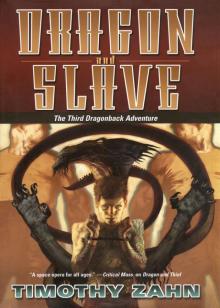 Dragonback 03 Dragon and Slave
Dragonback 03 Dragon and Slave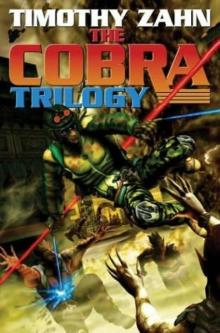 Cobra Bargain
Cobra Bargain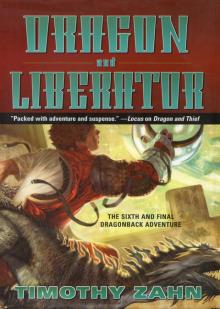 Dragonback 06 Dragon and Liberator
Dragonback 06 Dragon and Liberator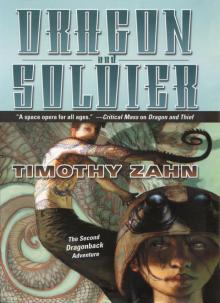 Dragonback 02 Dragon and Soldier
Dragonback 02 Dragon and Soldier Warhorse
Warhorse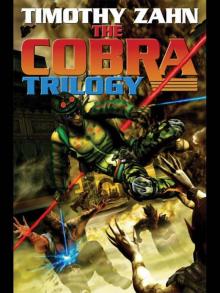 The Cobra Trilogy
The Cobra Trilogy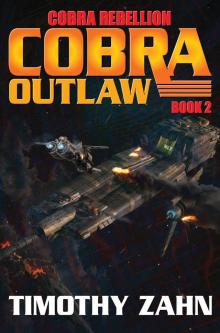 Cobra Outlaw - eARC
Cobra Outlaw - eARC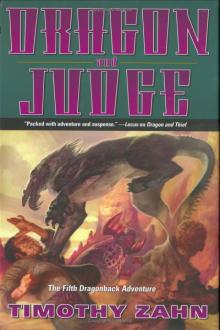 Dragon and Judge
Dragon and Judge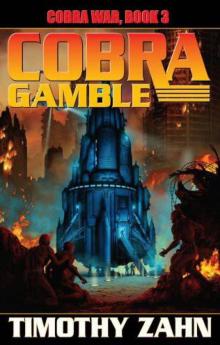 Cobra Gamble
Cobra Gamble The Domino Pattern
The Domino Pattern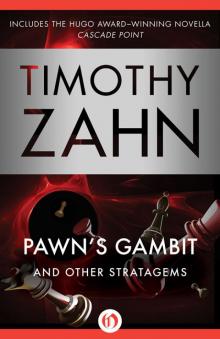 Pawn's Gambit: And Other Stratagems
Pawn's Gambit: And Other Stratagems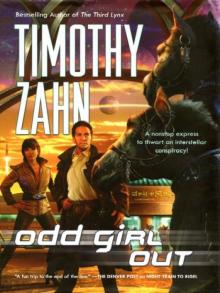 Odd Girl Out
Odd Girl Out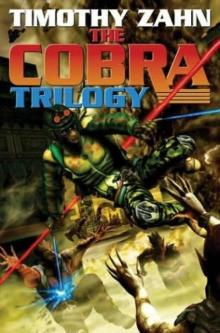 Cobra Strike
Cobra Strike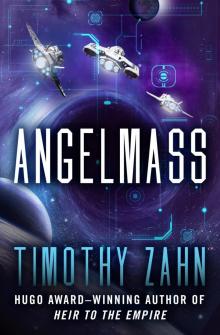 Angelmass
Angelmass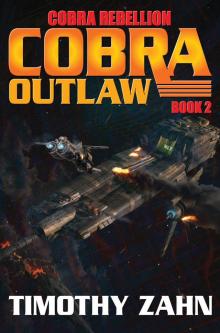 Cobra Outlaw
Cobra Outlaw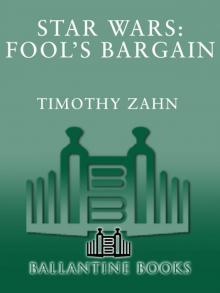 Heir to the Empire
Heir to the Empire The Icarus Hunt
The Icarus Hunt Star Wars - Thrawn Trilogy - The Last Command 03
Star Wars - Thrawn Trilogy - The Last Command 03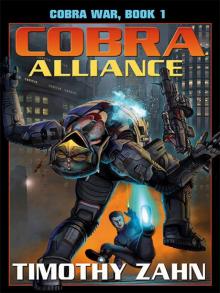 Cobra Alliance
Cobra Alliance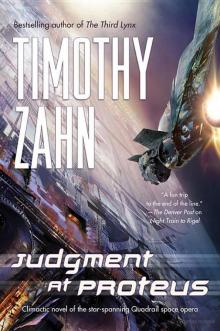 Judgment at Proteus
Judgment at Proteus Star Wars - Thrawn Trilogy - Dark Force Rising 02
Star Wars - Thrawn Trilogy - Dark Force Rising 02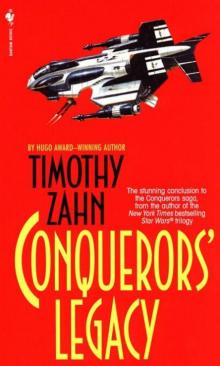 Conquerors' Legacy
Conquerors' Legacy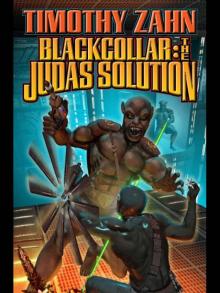 The Judas Solution
The Judas Solution Conquerors' Pride
Conquerors' Pride Hammer of the Gods
Hammer of the Gods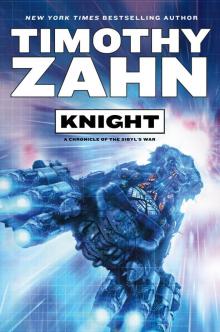 Knight
Knight Ghost Riders in the Sky
Ghost Riders in the Sky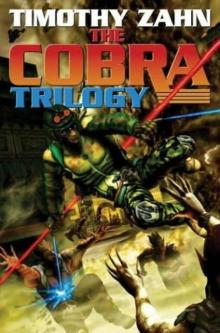 Cobra
Cobra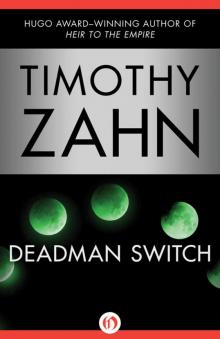 Deadman Switch
Deadman Switch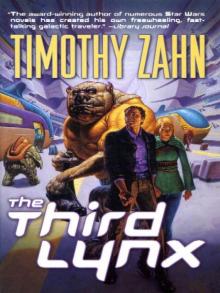 The Third Lynx
The Third Lynx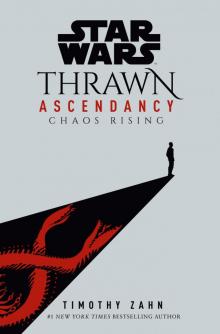 Chaos Rising
Chaos Rising Star Wars - Thrawn Trilogy - Heir to the Empire 01
Star Wars - Thrawn Trilogy - Heir to the Empire 01 Manta's Gift
Manta's Gift Spinneret
Spinneret Soulminder
Soulminder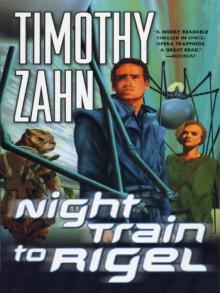 Night Train to Rigel
Night Train to Rigel Blackcollar
Blackcollar Conquerors' Heritage
Conquerors' Heritage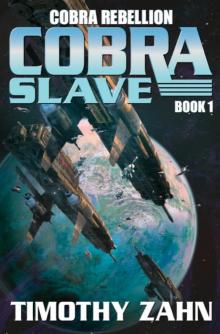 Cobra Slave
Cobra Slave A Coming of Age
A Coming of Age Triplet
Triplet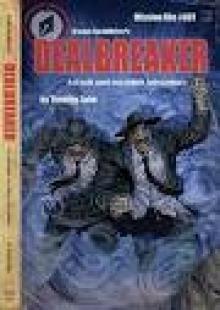 Dealbreaker
Dealbreaker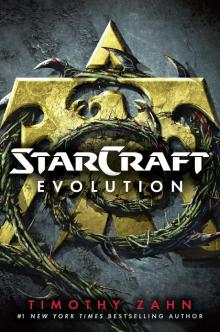 StarCraft
StarCraft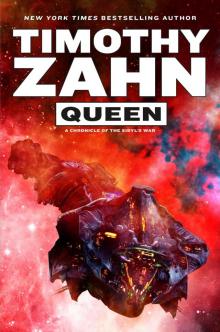 Queen
Queen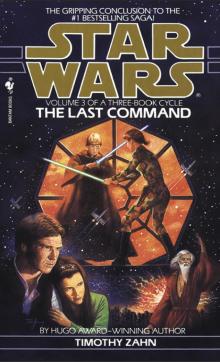 The Last Command
The Last Command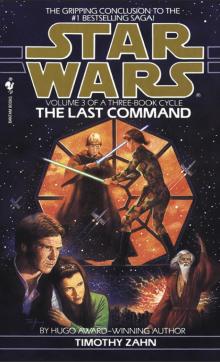 Star Wars: The Last Command
Star Wars: The Last Command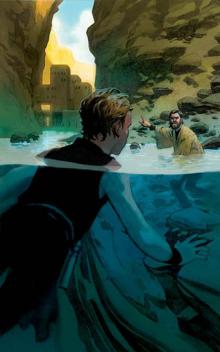 Star Wars Clone Wars: Changing Seasons
Star Wars Clone Wars: Changing Seasons Scoundrels
Scoundrels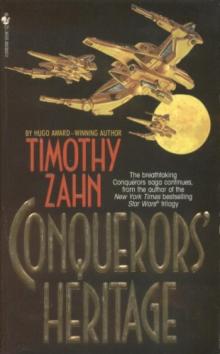 Conquerors 2 - Conquerors' Heritage
Conquerors 2 - Conquerors' Heritage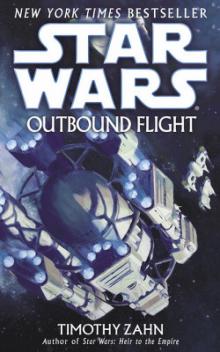 Outbound Flight (звёздные войны)
Outbound Flight (звёздные войны)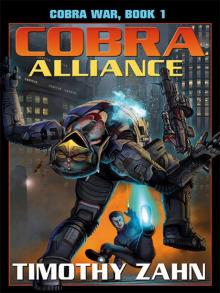 Cobra Alliance-Cobra War Book 1
Cobra Alliance-Cobra War Book 1 Hero of Cartao 2. Hero's Rise
Hero of Cartao 2. Hero's Rise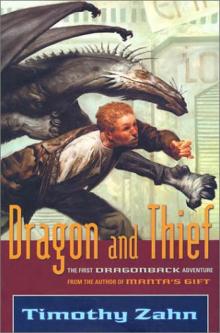 Dragon and Thief d-1
Dragon and Thief d-1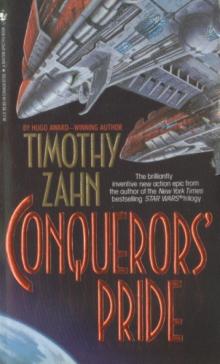 Conquerors 1 - Conquerors' Pride
Conquerors 1 - Conquerors' Pride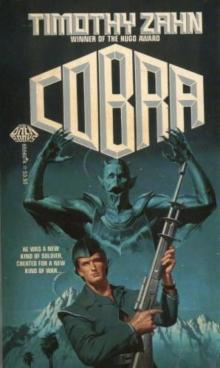 Cobra Alliance cw-1
Cobra Alliance cw-1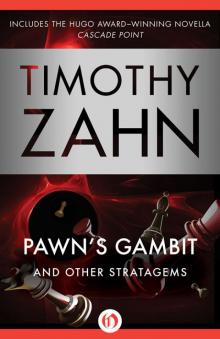 Pawn’s Gambit
Pawn’s Gambit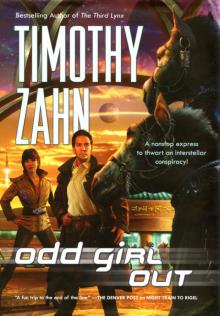 Odd Girl Out q-3
Odd Girl Out q-3 Dragon and Slave
Dragon and Slave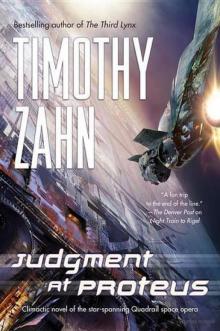 Judgment at Proteus q-5
Judgment at Proteus q-5 Night Train to Rigel (Quadrail Book 1)
Night Train to Rigel (Quadrail Book 1)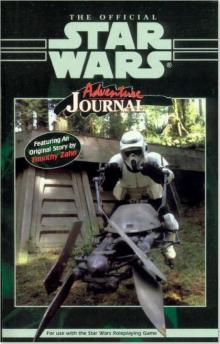 Star Wars: Adventure Journal 11: Command Decision
Star Wars: Adventure Journal 11: Command Decision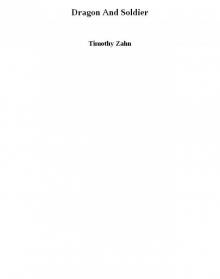 Dragon And Soldier
Dragon And Soldier Hero of Cartao 3. Hero's End
Hero of Cartao 3. Hero's End For Love of Amanda
For Love of Amanda Distant Friends and Other Stories
Distant Friends and Other Stories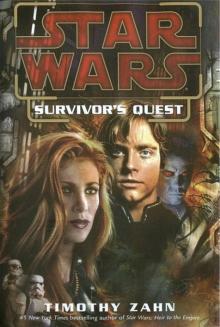 Star Wars: Survivor's Quest
Star Wars: Survivor's Quest Hero of Cartao 1. Hero's call
Hero of Cartao 1. Hero's call The Domino Pattern (Quadrail Book 4)
The Domino Pattern (Quadrail Book 4)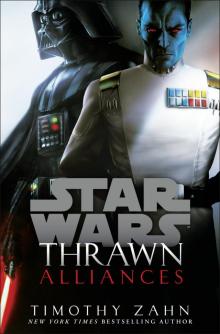 Thrawn_Alliances_Star Wars
Thrawn_Alliances_Star Wars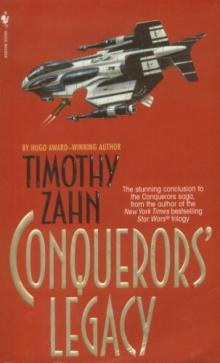 Conquerors 3 - Conquerors' Legacy
Conquerors 3 - Conquerors' Legacy The Blackcollar Series
The Blackcollar Series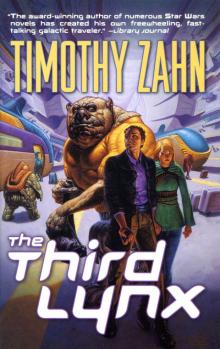 The Third Lynx q-2
The Third Lynx q-2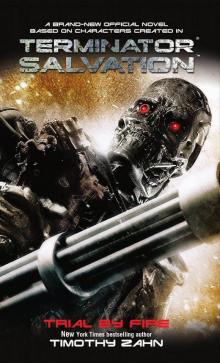 Terminator Salvation: Trial by Fire
Terminator Salvation: Trial by Fire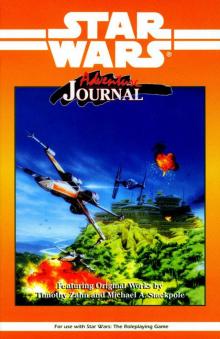 Star Wars - Mist Encounter
Star Wars - Mist Encounter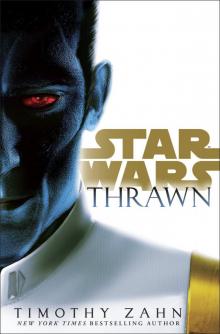 Thrawn
Thrawn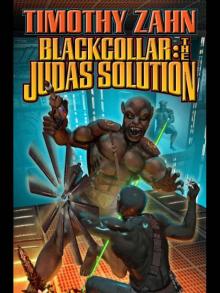 Blackcollar-The Judas Solution
Blackcollar-The Judas Solution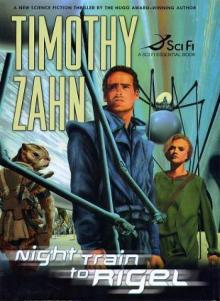 Night Train to Rigel q-1
Night Train to Rigel q-1 Cascade Point
Cascade Point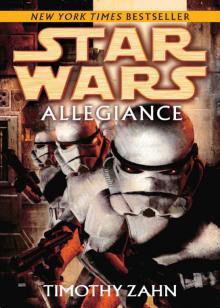 Allegiance
Allegiance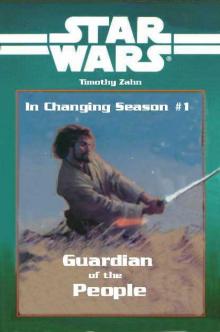 Star Wars - In Changing Season 1 - Guardian of the People
Star Wars - In Changing Season 1 - Guardian of the People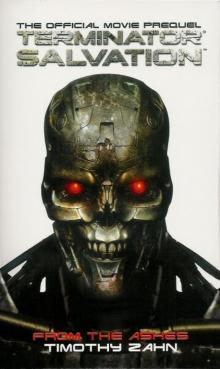 Terminator Salvation - From the Ashes ts-2
Terminator Salvation - From the Ashes ts-2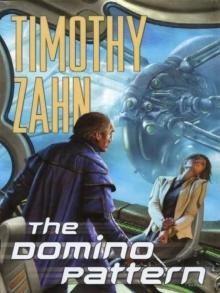 The Domino Pattern q-4
The Domino Pattern q-4 The Big Picture
The Big Picture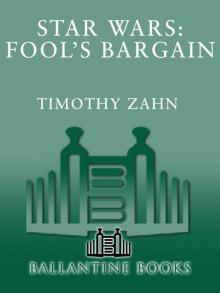 Star Wars: Fool's Bargain
Star Wars: Fool's Bargain Star Wars: Choices of One
Star Wars: Choices of One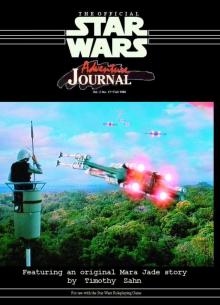 Star Wars - Jade Solitaire - Unpublished
Star Wars - Jade Solitaire - Unpublished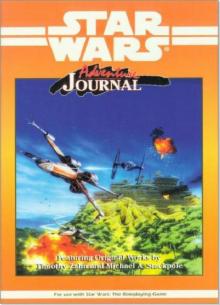 Star Wars: Adventure Journal: Mist Encounter
Star Wars: Adventure Journal: Mist Encounter Outbound Flight
Outbound Flight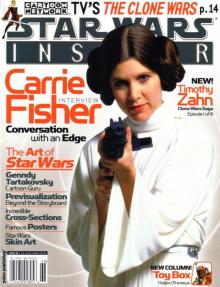 Star Wars - The Hero of Cartao - Part 1 - Hero's Call
Star Wars - The Hero of Cartao - Part 1 - Hero's Call Thrawn 1 - Specter of the Past
Thrawn 1 - Specter of the Past Survivor's Quest
Survivor's Quest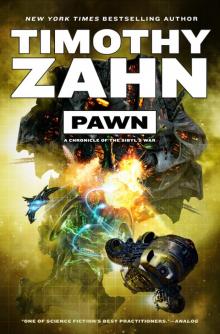 Pawn
Pawn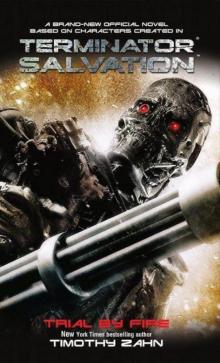 Trial By Fire ts-4
Trial By Fire ts-4 Vision of the future swhot-2
Vision of the future swhot-2 Star Song and Other Stories
Star Song and Other Stories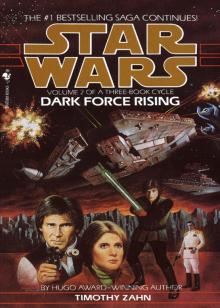 Dark Force Rising
Dark Force Rising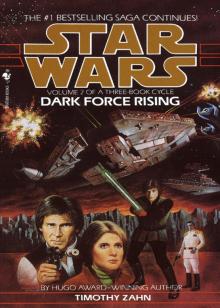 Star Wars: Dark Force Rising
Star Wars: Dark Force Rising Star Wars - Outbound Flight
Star Wars - Outbound Flight Blackcollar: The Judas Solution
Blackcollar: The Judas Solution The Green And The Gray
The Green And The Gray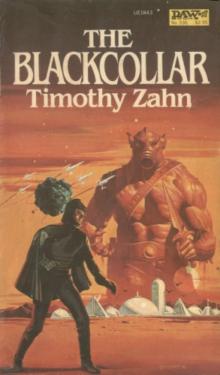 Blackcollar: The Blackcollar
Blackcollar: The Blackcollar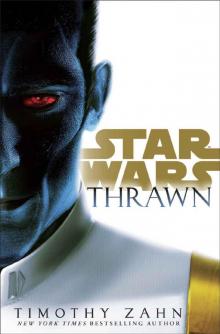 Star Wars_Thrawn
Star Wars_Thrawn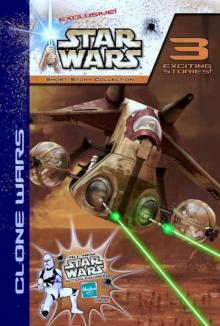 Star Wars - Duel
Star Wars - Duel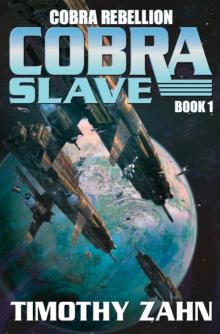 Cobra Slave-eARC
Cobra Slave-eARC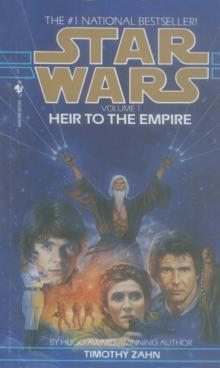 Star Wars: Heir to the Empire
Star Wars: Heir to the Empire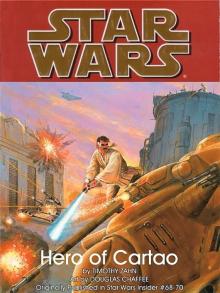 Star Wars: Clone Wars Stories: Hero of Cartao
Star Wars: Clone Wars Stories: Hero of Cartao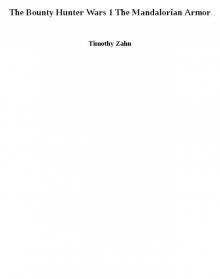 The Bounty Hunter Wars 1 The Mandalorian Armor
The Bounty Hunter Wars 1 The Mandalorian Armor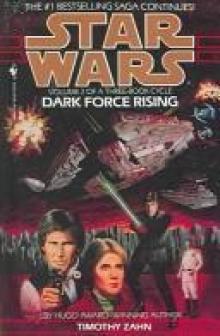 Dark Force Rising (Star Wars) swtt-2
Dark Force Rising (Star Wars) swtt-2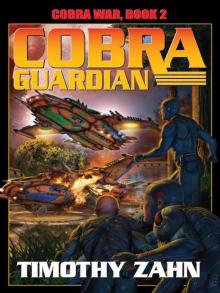 Cobra Guardian: Cobra War: Book Two
Cobra Guardian: Cobra War: Book Two The Third Lynx (Quadrail Book 2)
The Third Lynx (Quadrail Book 2) Time Bomb And Zahndry Others
Time Bomb And Zahndry Others Blackcollar: The Backlash Mission
Blackcollar: The Backlash Mission Winner Lose All--A Lando Calrissian Tale: Star Wars
Winner Lose All--A Lando Calrissian Tale: Star Wars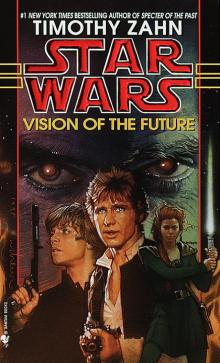 Star Wars: The Hand of Thrawn II: Vision of the Future
Star Wars: The Hand of Thrawn II: Vision of the Future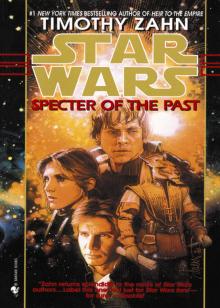 Specter of the Past
Specter of the Past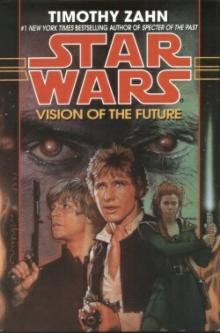 Star Wars - Hand of Thrawn 2 - Vision of the Future
Star Wars - Hand of Thrawn 2 - Vision of the Future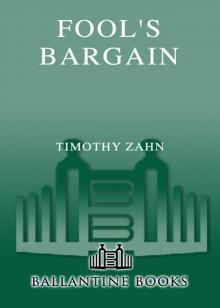 Fool's Bargain
Fool's Bargain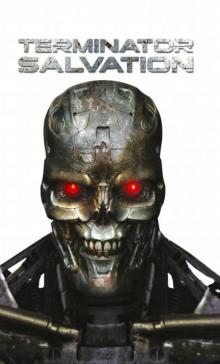 From the Ashes
From the Ashes Coming of Age
Coming of Age